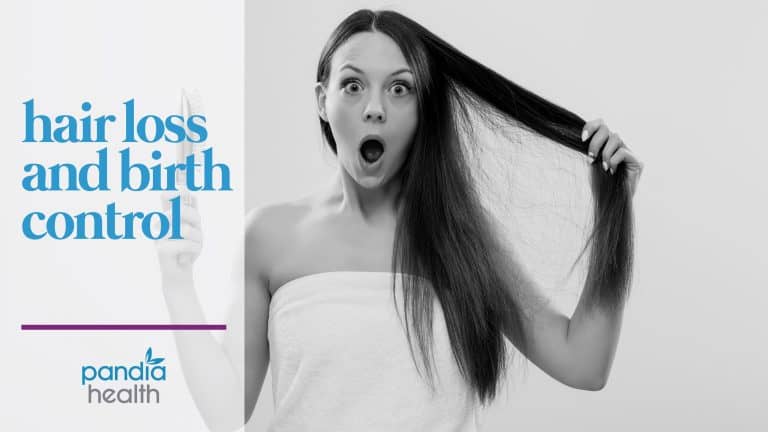
"It's important to note the vast majority of people who use hormonal birth control have no issues with hair loss," says obstetrician and author Dr. Jennifer Lincoln. Dr. Green says platelet-rich plasma (PRP) therapy can also be used to treat hair loss. "This minimally invasive cosmetic procedure utilizes growth factors and is designed to stimulate new hair growth while strengthening existing strands," Dr. Green says. If the two hormones are not balanced, a condition called endometrial hyperplasia (excessive growth of the uterine lining) can occur. At Pandia Health, we take pride in prescribing birth control based on several factors, including age, ethnicity, BMI, and general health.
What Are the Stages of Hair Growth & Loss?
Birth control pills work by suppressing ovulation, thickening the cervical mucus, and changing the uterine lining to prevent implantation. Most baldness is caused by genetics (male-pattern baldness and female-pattern baldness). See your doctor if you are distressed by persistent hair loss in you or your child and want to pursue treatment. For women who are experiencing a receding hairline (frontal fibrosing alopecia), talk with your doctor about early treatment to avoid significant permanent baldness.
Progestin-only pill
This mostly happens in those who are particularly sensitive to hormones found in the pill, or for those with a family history of hormone-related hair loss. More commonly, though, birth control actually helps with unwanted hair growth. Oral contraceptives are also the main treatment for hirsutism, a condition that causes coarse, dark hair to grow on the face, back, and abdomen.

Hair loss after stopping birth control
It’s hard to predict who is (and isn’t) susceptible to contraceptive-related hair loss. If you have a good doctor, it may help to speak with him or her about your unique risk profile. Deciding which birth control is for you is a really individual choice and should be made based on the time you have and how much concentration you are willing to commit to avoid possible issues with hair loss. There are also non-hormonal methods available, like the copper IUD and the natural family planning method (NFP). However, the copper IUD may throw off zinc levels and NFP is time-intensive, requires a lot of mental awareness, and has a failure rate of about 25%. And that’s even despite the explosion of new birth control forms… and even despite the surge in anecdotes of a connection between contraceptive use and hair loss.
If we were to grossly oversimplify things, female hormonal birth control changes hormone levels to better match what’s observed during pregnancy. This “tricks” the body into thinking it’s already pregnant, so that ovulation stops. Progestin, an ingredient in most hormonal contraceptives, acts similarly to androgens. Birth control with high androgen indexes is more likely to cause hair loss in people already susceptible (Graves, 2018; Nassar, 2022). The type of hair loss that birth control can cause, androgenic alopecia, is the most common kind. The condition of alopecia, hair loss or thinning, occurs when the cycles are shortened.
I stopped taking birth control and lost clumps of hair: It was 'living hell' - New York Post
I stopped taking birth control and lost clumps of hair: It was 'living hell'.
Posted: Wed, 15 Jun 2022 07:00:00 GMT [source]
Understanding the hair growth cycle will help clinicians when evaluating patients with alopecia and classifying the cause of their hair loss. Telling patients that hormonal contraceptives vary in androgen index may help women who have experienced or are concerned about alopecia feel more comfortable about using low androgen index contraceptives. Clinicians who recognize alopecia symptoms related to hormonal contraceptive use can help patients recover more quickly.
Along with the changes that hormonal birth control causes in your reproductive system, the hormonal changes your entire body experiences can also affect other functions and parts of your body, including your hair. Yet, progestin may not always be the sole culprit of contraception-related hair loss. Some women are genetically predisposed to hair loss or may be hypersensitive to the hormones our bodies are exposed to when using birth control.
Female Celebrities Who Suffer from Hair Loss
However, they are not a substitute for professional medical advice, diagnosis, or treatment. You might have heard people say that birth control can cause hair loss. The procedure involves producing a highly concentrated plasma with a sample of the patient's blood, which is injected directly into targeted areas of the scalp. The injected PRP stimulates hair follicles of the scalp to generate hair growth.
Risk factors for hair loss
They thicken the mucus around the cervix, making it harder for sperm to swim up to the egg. In addition to nicotine, cigarettes and cigarette smoke contain more than 7,000 components. Health experts recognize smoking as a major preventable cause of premature death and disability in the United States. Evidence notes that when a person quits smoking, it is possible to undo some of the damage caused by the harmful effects of smoking. For example, within a couple of weeks to a few months, a person’s circulation may improve.
Mood-related side effects may be more common in women who have previously experienced depressive episodes. Since the body works to maintain a hormone balance, it’s possible that the introduction of hormones creates a disruption, causing changes in mood. These effects are among the reasons why some women take birth control specifically for premenstrual dysphoric disorder (PMDD), a serious form of PMS. Some women with endometriosis also take birth control to ease painful symptoms. All medication can have side effects, and people should report any that they experience to their doctor.
The reason for this relates to the way the pill impacts the hair cycle, which consists of a growing and a resting phase. It has been suggested that birth control pills can cause hair to switch from the growing phase to the resting phase too soon and for too long. While women only need to produce a tiny amount of androgens for reproductive health, higher levels of androgens can trigger alopecia in women. Women who experience hair loss tend to experience hair thinning and baldness that occurs around the entire head. For men, baldness tends to affect specific areas of the head, such as the temples, the crown, or the back of the head.

No comments:
Post a Comment